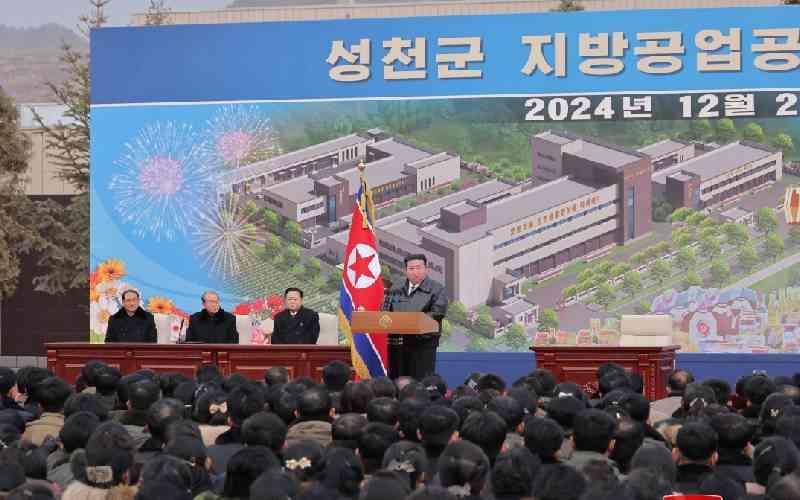Starting July 1, the Universities Funding Board will roll out a new funding formula that will strictly use students’ admission numbers and the courses they take to allocate funds.
This will mark an end to the current formula where each academic programme is allocated a rate of Sh 120,000 per year.
Under the current 26-year-old funding formula, the government pays a rate of Sh70,000 per academic programme per student. And students’ fees have been fixed at Sh16,000 while the costs of other needs such as accommodation, books, food and are catered for by the Higher Education Loans Board.
Under the new system known as the Differentiated Unit Cost (DUC), all university academic programmes have been grouped into 14 clusters and the cost of teaching each fixed.
The details are contained in report prepared by the Vice Chancellors Committee of Public Universities in Kenya, which revealed that training dentists would require the highest allocations. Training one dentist, for instance, will require Sh600,000 per academic year. The money will be spent on purchasing teaching requirements and paying lecturers.
This means that the money allocated per student will depend on the course taken by the student and will no longer be a fixed rate as it has been in the previous years and the institutions that offer arts programmes will be allocated less money than the ones offering sciences. If fully implemented the programme will cost Sh65 billion.
Medicine, for instance, will require Sh576, 000 per student yearly while pharmacy will require Sh432, 000. Arts will require the least funding at Sh144, 000 per student per year. Applied humanities such as languages and psychology will take Sh180, 000 per student per year.
According to the recurring expenditure summary for 2017/2018, the University of Nairobi received Sh6.3 billion in 2017 and will now receive Sh4.5 billion.
The Differentiated Unit Cost report says that University of Nairobi has a student population of 26,009, translating into a regular tax of Sh242,781 per student.
Egerton University, with 15,223 students, received Sh2.8 billion this year, but is expected to get Sh2.1 billion. This is about Sh700 million less than what it received this year.
Kenyatta University, with a student population of 21,462, received Sh3.1 billion, but is expected to get Sh2.8 billion, Sh300 million less.
Jomo Kenyatta University of Agriculture and Technology , with a student population of 12,029, will get increased funding because of the nature of the programmes it offers.
Under the 2017 financial year, JKuat received Sh1.4 billion but will get Sh1.7 billion, translating into an additional Sh300 million.
The Technical University of Kenya and the Technical University of Mombasa are also set for increased funding in 2018. Technical University of Kenya, which has 8,636 students, received Sh1.07 billion in 2017 and will get Sh1.2 billion this year.
The Technical University of Mombasa, with 4,520 students, received Sh770 million this year and is set to get some Sh793 million.
Stay informed. Subscribe to our newsletter
This is how much it will cost you to go to university in 2018.
Ranked the best university in informatics and chemical engineering, it would cost Sh39,500 the whole year for a Journalism student under the Joint Admissions Board (JAB) and Sh128,000 for a privately sponsored student. For Education it would cost one Sh90,000 for parallel student and Sh28,000 for a JAB student. On the other hand, medicine will cost Sh48,000 per year while parallel students part with pay Sh50,000 per year.
Maseno University has primarily been offering Bachelors of Education courses. It will now cost an undergraduate student in their first semester Sh26,450, with tuition fees being allocated Sh8,000, accommodation Sh2,900 and other charges like exam fees Sh1,500 and medial fees being Sh2,000.

In their second semester, they would pay Sh13, 150 with the exam fees and tuition fees remaining constant at Sh1,500 and Sh8,000 respectively.
Students are required to pay an extra Sh10,000 for their industrial attachment. Continuing JAB students in BSc Computer Science and Technology, Biomedical Science and Technology, Bachelor of Special Needs Education, and BA Communication and Media Technology are expected to pay Sh72,900 in their first semester with Sh70,000 catering for tuition fees and the remainder covering accommodation. Other charges, to be paid during registration, total to Sh12,250 bring the gross total to 85,150 for the first semester.
In the second semester one is expected to pay Sh65,150 with accommodation fees remaining the same. Registration costs will be Sh250 while examination fees Sh1,500 and maintenance fees Sh500. The student also has to pay an additional Sh10,000 for their industrial attachment.
For an undergraduate course in B.Ed courses inScience, Arts, French, Early Childhood Education, Physical Education, Bachelor of Social Work, Bachelor of Criminology, Bachelor of Journalism and Mass Communication, Bachelor of Technology Education (Civil Engineering), Bachelor of Technology Education (Mechanical Engineering), Bachelor of Technology Education (Electrical and Electronics Engineering)), Bachelor of Technology Education (Computer Studies) one is expected to pay Sh27,500 in their first semester, Sh12,100 in their second semester and a yearly total of Sh39,600 that is inclusive of other charges like exam fees and medial fees.
Students are required to pay attachment fees in their third year, which is Sh5,000 per semester. Bachelors of Technology students in their second and third year will pay Sh5,000 per semester for their attachments. Fourth year Bachelors of Technology students pay Sh8,000 for their project fees and Bachelors of Journalism and Mass Commination students pay Sh5,000 in the first and second semesters of their fourth year for practicals.

The communication studies powerhouse charges students per credit hour. Undergraduate communication students in Athi River campus pay Sh5,650 and Sh6,410 in Nairobi campus per credit hour.
Assuming a student takes up 16 credit hours per semester then they are expected to part with Sh102,560 and Sh90,400 for Nairobi campus students and for Athi River students respectively. Diploma students pursuing a communication course who assume 15 credit hours per semester pay Sh5,100 per credit hour. This adds up to Sh76,500. Diploma students pursuing other courses on offer pay Sh3,000 per credit hour, which adds up to Sh45,000 per semester. If a master’s course student takes 12 credit hours per semester, then they are required to pay Sh7,800 per credit hour that adds up to Sh93,600 per semester.
PhD students, on the other hand pay Sh15,000 per credit hour. Nursing students’ fees is a constant at Sh80,715 per semester. A penalty fee of Sh2,000 is charged per month for students who do not clear their fees on time. Athi River campus students are required to pay Sh42,052 for hostel and cafeteria.
A medical fee of Sh17,227 per year is paid by all students except those covered by companies other than NHIF. Transport fees are Sh20,000 per semester from Nairobi campus to Athi River campus and Sh12,000 per semester from Athi River town to Athi River campus.
USIU is known for setting standards for the other local private universities and boasts high entrance standards. Undergraduate course students cough up a minimum total of Sh105,800 per semester for 12 units each charged at Sh7,750 per hour.

The institution charges Sh5,000 Library and IT lab fees. Student activity fees cost Sh800 and medical fees are priced at Sh2,000. The fees range from Sh105,800 to Sh161,274.50.
The graduate fees differ depending on one’s course, ranging from Sh113,000 to Sh750,000 for 45 units. The doctoral fee range between Sh97,800 to Sh156,800 depending on course.
Non-East Africans pay 30 per cent above local rates for tuition and all mandatory charges like library, medical and student activity fees. Fees are subject to an annual review and for project/thesis: graduate students are required to be continuously enrolled during every semester while their thesis/project remains incomplete.
In the first semester, the project/thesis is charged as a full three unit graduate course, while the two subsequent terms are charged at 50 per cent of the tuition. Other charges remain the same. If the project/thesis extends beyond the third term, then tuition reverts to full charge.
A non-refundable quality assurance fee is also charged annually.
 The Standard Group Plc is a
multi-media organization with investments in media platforms spanning newspaper
print operations, television, radio broadcasting, digital and online services. The
Standard Group is recognized as a leading multi-media house in Kenya with a key
influence in matters of national and international interest.
The Standard Group Plc is a
multi-media organization with investments in media platforms spanning newspaper
print operations, television, radio broadcasting, digital and online services. The
Standard Group is recognized as a leading multi-media house in Kenya with a key
influence in matters of national and international interest.
 The Standard Group Plc is a
multi-media organization with investments in media platforms spanning newspaper
print operations, television, radio broadcasting, digital and online services. The
Standard Group is recognized as a leading multi-media house in Kenya with a key
influence in matters of national and international interest.
The Standard Group Plc is a
multi-media organization with investments in media platforms spanning newspaper
print operations, television, radio broadcasting, digital and online services. The
Standard Group is recognized as a leading multi-media house in Kenya with a key
influence in matters of national and international interest.










